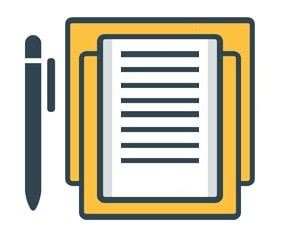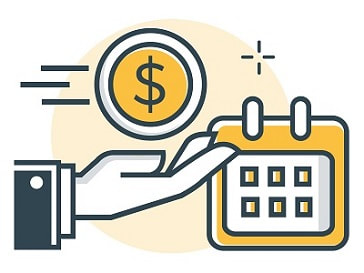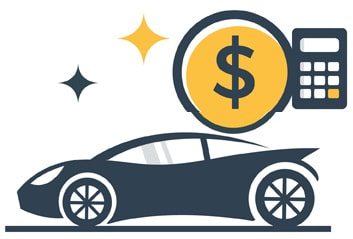20 Must-Know Money Lessons (Learned From Experience)
Our guide reveals 20 money lessons, often learned by people the hard way, that you can consider and use to get ahead financially.
Updated 8 November 2023
Introduction
Related Guides:
- There are a lot of hard-learned lessons, and this guide collects what we see as the most important twenty to help you avoid them.
- Financial mistakes are easy to make and hard to recover from. We've focused on relationships; our view is that a harmonious union isn't just about love; it's about aligning financial dreams and habits. If things go wrong, divorce can take years or even decades to recover from.
- Costs in New Zealand are high, and there is an alarming amount of consumer debt. We believe it's holding people back from being able to plan their futures. The lessons we list below are designed to help make better decisions.
- This guide is our first publication and is aimed to share hard lessons learned with New Zealanders looking to get ahead. If you have any comments or wish to share something on this very important subject, please contact our research team.
Related Guides:
MoneyHub Founder Christopher Walsh Explains Why We've Published this Guide:
|
"Everyone, at some point in their lives, will make financial decisions they later regret. Whether it's an impulsive purchase, a bad investment choice, or a missed opportunity, the key is not to dwell but to learn and move forward. We're all human, and mistakes are part of our growth journey. I've made a few financial errors, but each has been a lesson. It's not the setback that defines you, but how you recover, learn, and plan for the future".
"There's a lot of lessons around relationships and money - the priority is to share those, so you'll see them at the top of the list below". "Investments shouldn't be gambles based on trends or popular opinion, but informed decisions made with a clear understanding of the risks and potential rewards. "During the 2020 and 2021 investment booms, I saw too many individuals jump into markets they didn't fully grasp. When the tide turned, they wondered where it all went wrong. Educating yourself and seeking expert advice can make all the difference in your investment journey." "Remember; life is filled with lessons, and many revolve around money. But remember, while money plays an essential role in our lives, it's the experiences, relationships, and memories we make that truly enrich us. Make informed choices, prioritize your well-being, and always strive for a balance between financial prosperity and personal fulfilment." |
Christopher Walsh
MoneyHub Founder |
Twenty Must-Know Money Lessons (Learned From Experience)
Your choice of partner is one of the biggest, if not the biggest, financial decisions you will ever makeCompatibility in love is one thing, but financial compatibility can dictate the overall harmony in a relationship. If you and your partner have drastically different spending habits or financial goals, it can lead to tension and disagreements.
Too many relationships are filled with friction because of money. It's essential to be on the same page and value the same things; otherwise, disagreements and tension will always arise. MoneyHub Founder Christopher Walsh shares his view on partner choices:
|
Divorce will (often) destroy you financiallyWhile not every separation results in financial ruin, the costs associated with divorce - both direct and indirect - can be staggering. Legal fees, asset divisions, rent costs while living out of home and other expenses can disrupt even the most stable financial positions.
If you're going to get divorced, you need to be prepared to face the financial costs and make a plan to pay for them. Many older New Zealanders struggle to recover from a divorce in their 50s or 60s. It's a tough place to be - when assets are split, often it's the family home that is the largest asset, and it may need to be sold to divide the assets equally. This leaves two people without a home a sum of money and facing the issues of a new mortgage, 25+ year repayments, and possibly bringing in flatmates to help with bills and living costs. If it's not clear - divorce is critically problematic and often can't be avoided, meaning it becomes a hard-learned lesson by an increasing number of New Zealanders per this 2022 NZ Herald article. Christopher comments:
|
A good partner can significantly improve your positionHaving a partner with similar financial goals can accelerate wealth-building. Joint ventures like purchasing property young can lay a foundation for future stability and growth. Achieving success is much easier if you're both working towards a common goal. Together, you'll make sacrifices and discuss what you must do to reach your goals.
New Zealanders who struggle with their partner to talk about money have a harder time making things work - honesty around money is a huge component of a healthy relationship. Christopher comments:
|
A pre-nuptial/contracting out agreement is very valuableMany New Zealanders think that a prenup stems from distrust or anticipating failure. It's not either - it's about protecting individual assets and clearly defining financial expectations. Such agreements can prevent potential conflicts and misunderstandings down the line.
Prenups or contracting out agreements can be seen as unromantic, but they're essentially financial clarity tools. Our guide to prenups has more information about what's involved and why many New Zealanders have regretted not getting one. Christopher shares:
|
It's the ten $15 ones that derail your finances, not the one or two $100 purchasesSmall, frequent expenses often fly under the radar but can add up quickly, eating into your savings potential without you even realising.
It's easy to track big-ticket items, but those small daily or weekly expenses? They're the silent budget killers. Being mindful of them can lead to significant savings over time. Examples include food at petrol stations, takeaway coffee and cakes, small items from shops you don't need (or later want to keep hold of), subscriptions you don't use, and many more everyday expenses. A budget app is a strong starting point to see exactly where your money goes. Christopher comments:
|
Changing jobs is the fastest way to earn moreLoyalty to a company is arguably an old approach many employers take advantage of by way of a 'loyalty discount'. Throughout New Zealand, switching jobs is often the only way to get a substantial salary bump and career advancement. Too many businesses don't need to be dynamic, so they don't increase their pay above standard annual salary increments and hope that staff stay.
While job hopping shouldn't be done without due consideration, sometimes changing roles or companies can bring about a better salary and fresh opportunities and experiences. Christopher comments:
|
Avoid unnecessary debt - it works out to be a trapWhile certain debts like student loans or mortgages can be seen as investments in the future, frivolous debt acquired for instant gratification can often be financially and mentally detrimental.
It's crucial to maintain oversight and control over your financial obligations - debt can be empowering or enslaving, depending on how it's managed. Christopher cautions:
|
Save at the start of your pay cyclePrioritising savings ensures that you're consistently building wealth. Setting aside money right after being paid makes you less likely to spend it on non-essentials. People who put at least 10% of their money into savings (for example, a high-interest paying call account have options and can make informed financial choices. Those who don't save and spend first end up without much left (if anything) and rely on debt.
Christopher's suggestion is simple:
Related tip: Save 10% of your net income for the long term if you want to be happy and sleep well Consistent, disciplined saving can pave the way for financial freedom in the future. Setting aside a fixed percentage ensures you build wealth regardless of income fluctuations. Christopher emphasises:
|
Focus on increasing your primary income sourceWhile side hustles and investments help grow your wealth and financial freedom, the bulk of your effort should be towards maximising your primary income, as it's likely the most significant source of your earnings. For this reason, we believe changing jobs is a lesson well learned by many New Zealanders who get an automatic pay raise without all the nonsense and meetings with 'the boss' just by switching jobs efficiently.
Christopher observes:
|
Money isn't everythingWhile financial security is crucial, it should never come at the cost of personal happiness and well-being. Strive for a balance between saving and enjoying the experiences life has to offer.
Money is a tool, not an end goal. It's essential to balance financial prudence and enjoying the moment - there's no fun to be had from staying at home and checking how much money you have in your investments if you're missing out on life. Christopher reflects:
|
The power of compounding interest is understatedOver time, the interest earned on your investments or savings can earn interest, leading to exponential growth. Starting early can make a massive difference in the long run. Our guide to compound interest has more details.
Christopher states:
|
Career and money aren't the sole sources of happinessAchieving career success and amassing wealth can be fulfilling, but they should never come at the cost of personal well-being or relationships. You should always look for ways to stay challenged and learn in a job, but it's dangerous to focus on making as much money as possible as the primary reason to start work every day.
Additionally, while financial security is essential, it shouldn't become the sole focus of your life. Relationships, experiences, and personal growth are invaluable and cannot be quantified monetarily. Christopher shares a personal lesson:
|
Your money mindset shapes your financial realityThe way you think about money, often rooted in childhood observations and experiences, deeply influences your financial behaviours and decisions throughout life. This 'money mindset' can be either a limiting belief system holding you back or an empowering perspective propelling you forward.
Many don't realise how much their internal narratives – such as "money doesn't grow on trees", "you have to work hard to earn a dollar", or "money is the root of all evil" – impact their financial lives. Reassessing and reshaping these beliefs can open doors to opportunities and a healthier relationship with money. Our view: While it's crucial to understand the value of hard work, it's equally vital to recognise the importance of working smart and letting money work for you. Investing wisely, seeking passive income streams, and being open to financial learning can lead to significant growth. Helping to share this way of thinking is the purpose of the MoneyHub website. Christopher notes: "Your relationship with money goes beyond numbers in your bank account. It's intertwined with your self-worth, aspirations, fears, and dreams. Recognising and challenging any limiting beliefs about money can lead to a transformation not just in your finances but in your overall approach to life". |
Don't buy a brand-new vehicleVehicles, especially brand-new ones, depreciate faster than most assets. While the allure of a shiny new car is tempting, a gently used one can provide almost the same experience for a fraction of the cost.
Christopher’s Take:
|
Beware of lifestyle creep - it's a trapA rise in income often sees a parallel increase in expenses. But upgrading your lifestyle whenever your salary bumps up can set you back in your financial journey.
Christopher warns:
|
Don't FOMO; invest only in what you understandChasing after the latest investment trend or being pressured by the fear of missing out can harm your financial health. So many people rushed into shares and crypto at the tail-end of the run during 2020 and 2021 and lost a lot of money and didn't understand why. Understanding your investment is crucial to making informed decisions - our list of investing mistakes lists major errors and why people keep making the same mistakes.
Christopher highlights the perils of impulsive investing:
|
Living with parents can be financially wise if circumstances allowLiving at home can provide financial benefits if you're fortunate enough to have a good relationship with your parents and they're open to it. It allows for substantial savings, and why you miss the opportunity of flatting or living away from home, the cost savings are significant.
Christopher notes:
|
A commitment to getting debt-free as quickly as possible gives you more options (and helps you sleep better)Paying off debts, especially significant ones like mortgages helps achieve financial freedom faster. This often requires a combination of disciplined spending and making sacrifices, but if you want to spend your money on yourself rather than credit card and bank interest repayments, getting rid of debt is the only way to give you the power.
Christopher explains further: "There is too much consumer debt - and it's a reason banks and loan companies are swimming in money while ordinary New Zealanders feel anxious checking their credit card and loan statements. It's a huge waste of money - spending $5,000 on non-essentials on a credit card and then parking the debt at 20% p.a. interest rates is a common state of affairs in every corner of New Zealand". |
Business ownership is risky, but it does offer financial growth to those who make it a successMany wealthy New Zealanders attribute their financial success to owning or being involved in businesses. While not without risks, business ownership can offer exponential financial rewards. However, this isn't something for everyone - most businesses fail within a few years, as evidenced by this NZ data. For those who make it work, it can be much more lucrative than working for someone else, but this depends on the industry, your timing, scale and commitment.
Christopher observes:
|
Educate yourself on financial products to make better decisionsUnderstanding how financial products work, from mortgages to credit cards, can save you money and allow you to use these tools to your advantage. MoneyHub explains everything, but there are other sources - those who want to learn will be more likely to make better choices and keep control of their money.
Financial education is empowerment. Understanding how different financial products operate can make them work for you instead of being trapped by hidden pitfalls. Christopher makes the risks clear:
|




























